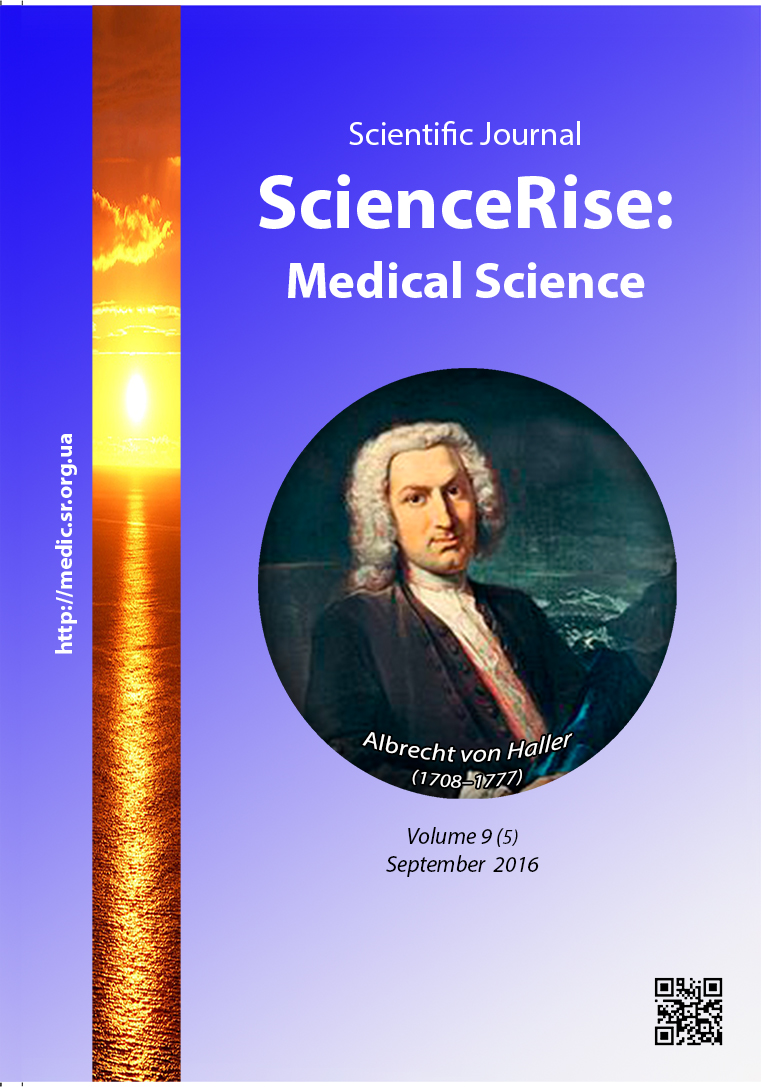The study of life quality of married couples with the different state of family health and addictive behavior in women
DOI:
https://doi.org/10.15587/2519-4798.2016.77943Keywords:
life quality, women, addictive behavior, disorder of family health, married coupleAbstract
Aim – the study of life quality of married couples with the different state of family health and addictive behavior (AD) in women for revelation of targets of the further psychocorrectional work with this contingent.
Contingent. 321 married couples (MC), who addressed for help because of disorders of family relations and “socially acceptable” addictive behavior in women (studied group, SG). As the groups of comparison there were also examined 50 MC with disorders in family health, where were not the problems of addictive character in women (group of comparison, GC) and 50 conventionally harmonious MC (group of comparison 2, GC 2).
Methods. Clinical-psychological and psychodiagnostic ones using the questionnaire of life quality, elaborated by Mezzich, Cohen, Ruiperez, Liu&Yoon (1999).
Results. In women with family health disorder the life quality is characterized with essential decrease with heterogenic injury of its separate components, not depending of presence/absence of addictive behavior.
The main problem that generates the circle of “pathological” causal connections of the disorder of family functioning in women and formation of addictive behavior in them is the problem of women’s feeling as being psychologically and emotionally “torn away” in family and macrosocial environment. Such situation that is a result of situation-conditioned frustrative (maladjustment) reaction that is, in its turn, conditioned by the presence of emotional and communicative problems between women – family – society, provoke women to solve it in “addictive” way.
Conclusions. The basic target of psychological correction and psychoprophylactic support at the family health disorders in women with addictive behavior must be the problem of women’s feeling as being psychologically and emotionally “torn away” in family and macrosocial environment that in most women becomes a background for addictionReferences
- Krishtal', V. V. (2006). Ljubov' i seks kak lechebnyj factor. Medicinskaja psihologija, 2, 14–19.
- Markova, M. V., Vjetryla, T. G. (2009). Zagal'nyjpogljad na problemu formuvannja ta funkcionuvannjasim’i'. Ukrai'ns'kyj visnyk psyhonevrologii', 17/1 (58), 89–92.
- Markova, M., Yaruj, V. (2016). Behavioral addiction as a codependence’s manifestation of wife men with alcohol dependence. WPA Congress «Psychiatric epidemiology meets genetics: the public health consequences», 54–55.
- Zhdanova, M. P. (2007). Psihoterapija narushenija zdorov'ja sem'i pri alkogolizme u zheny. Ukrainskij vestnik psihonevrologii, 15/2 (51), 60–67.
- Markova, M. V., Seljukova, T. V. (2000). Rol' himichnoi' zalezhnosti v rozvytku vnutrishn'osimejnoi' dezadaptacii'. Arhivpsyhiatrii', 3-4 (22-23), 25–26.
- Jejdmiller, Je. G., Justickis, V. (1999). Psihologija i psihoterapija sem'i. Sankt-Peterburg: ZAO «Iz-vo Piter», 656.
- Schaap, C. (1982). Communication and adjustment in marriage. Lisee: Swets & Zeitliger B. V., 281.
- Kocharjan, G. S., Kocharjan, A. S. (1994). Psihoterapija seksual'nyh rasstrojstv i supruzheskih konfliktov. Moscow: Medicina, 224.
- Savina, M. V. (2016). Strukturni j fenomenologichni osoblyvosti addyktyvnoi' povedinky u zhinok z porushennjam simejnoi' vzajemodii'. Ukrai'ns'kyj visnyk psyhonevrologii', 24 (1), 111–115.
- Linskij, I. V., Minko, A. I., Artemchuk, A. F. et. al. (2010). Addiktivnyj status i metod ego kompleksnoj ocenki pri pomoshhi sistemy AUDIT-podobnyh testov. Psihicheskoe zdorov'e, 6 (49), 33–45.
- Maruta, N. A., Pan'ko, T. V., Javdak, I. A. et. al. (2004). Kriterij kachestva zhizni v psihiatricheskoj praktike. Kharkov: RIF ARSIS, LTD, 239.
- Lapach, S. N., Chubenko, A. V., Babich, P. N. (2000). Statisticheskie metody v mediko-biologicheskih issledovanijah s ispol'zovaniem Excel. Kyiv: Morion, 320.
Downloads
Published
How to Cite
Issue
Section
License
Copyright (c) 2016 Майя Василівна Савіна

This work is licensed under a Creative Commons Attribution 4.0 International License.
Our journal abides by the Creative Commons CC BY copyright rights and permissions for open access journals.
Authors, who are published in this journal, agree to the following conditions:
1. The authors reserve the right to authorship of the work and pass the first publication right of this work to the journal under the terms of a Creative Commons CC BY, which allows others to freely distribute the published research with the obligatory reference to the authors of the original work and the first publication of the work in this journal.
2. The authors have the right to conclude separate supplement agreements that relate to non-exclusive work distribution in the form in which it has been published by the journal (for example, to upload the work to the online storage of the journal or publish it as part of a monograph), provided that the reference to the first publication of the work in this journal is included.









